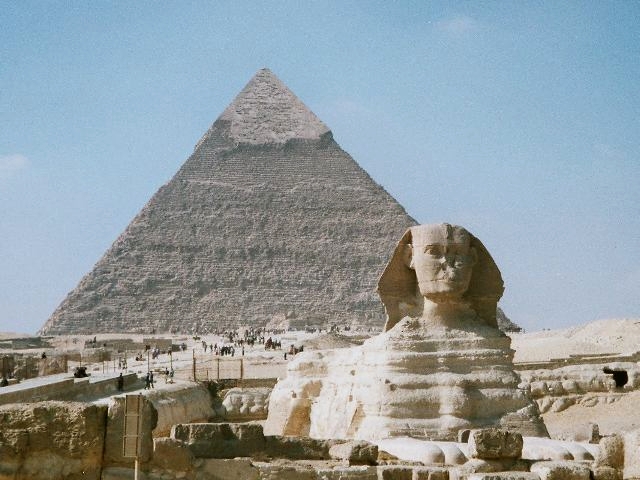Ancient Egypt was an ancient civilization of North Eastern Africa, focused across the lower reaches of the Nile River in what is now the modern country of Egypt today.
Egyptian civilization coalesced around 3150 BC with the political unification of Upper and Lower Egypt under the first pharaoh. The history of Ancient Egypt occurred in a series of stable Kingdoms, separated by periods of relative instability known as Intermediate Periods: the Old Kingdom of the Early Bronze Age, the Middle Kingdom of the Middle Bronze Age and the New Kingdom of the Late Bronze Age.
Egypt reached the pinnacle of its power during the New Kingdom, in the Ramesside period, after which it entered a period of slow decline. Egypt was conquered by a succession of foreign powers that included Persian rule in this Late Period. In the aftermath of Alexander the Great's death, Ptolemy Soter (One of his Generals) established himself as the new ruler of Egypt. This Ptolemaic Dynasty ruled Egypt until 30 BC, when it was taken by the Roman Empire and became a Roman province.
The success of Ancient Egyptian civilization came partly from its adaption to the conditions of the Nile River Valley. The flooding and controlled irrigation of the fertile valley produced surplus crops, which encouraged social development and culture.
 With resources at an over-estimated high, the administration sponsored mineral exploitation of the valley and nearby desert regions, the early development of an independent writing system, the organization of collective construction and agricultural projects, trade with surrounding regions, and a formidable military intended to defeat foreign enemies and assert Egyptian dominance.
With resources at an over-estimated high, the administration sponsored mineral exploitation of the valley and nearby desert regions, the early development of an independent writing system, the organization of collective construction and agricultural projects, trade with surrounding regions, and a formidable military intended to defeat foreign enemies and assert Egyptian dominance.Motivating and organizing these activities was a bureaucracy of elite scribes, religious leaders, and administrators under the control of a Pharaoh who ensured the cooperation and unity of the Egyptian people in the context of an elaborate system of religious beliefs.
The many achievements of the Egyptians in their history include the quarrying, surveying and construction techniques that facilitated the building of monumental pyramids, temples, and obelisks; a system of mathematics, a practical and effective system of medicine, irrigation systems and agricultural production techniques, the first known ships, glass technology, and the earliest known peace treaty.
Egypt left a lasting legacy, it's art and architecture were widely copied, and its antiquities carried off to far corners of the world. Its monumental ruins have inspired the imaginations of travellers and writers for centuries. A new-found respect for antiquities and excavations in the early modern period led to the scientific investigation of Egyptian civilization and a greater appreciation of its cultural legacy.
All of this comes to what I believe will be a rich and interesting setting to what I will base this project on, I will continue to research Ancient Egypt and look further to its Mythology, Architecture and Art to base and reference my ideas and designs from.

No comments:
Post a Comment